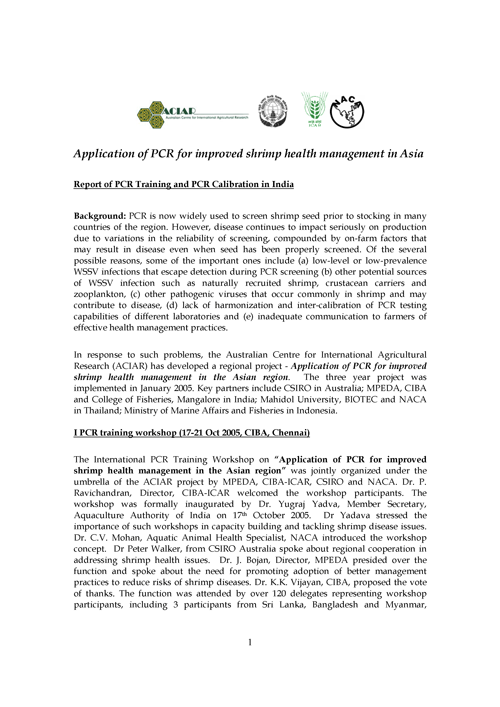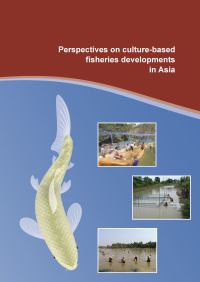Application of PCR for improved shrimp health management in Asia
16 July 2007 | 1241 Downloads | .pdf | 354.12 KB | Australia, Bangladesh, Health and Biosecurity, India, Indonesia, Myanmar, Shrimp, Sri Lanka, Thailand, Education and Training
This is the report of the project Application of PCR for improved shrimp health management in the Asian region, funded by the Australian Centre for International Agricultural Reserch. The three year project was implemented in January 2005. Key partners include CSIRO in Australia; MPEDA, CIBA and College of Fisheries, Mangalore in India; Mahidol University, BIOTEC and NACA in Thailand; Ministry of Marine Affairs and Fisheries in Indonesia.
PCR is now widely used to screen shrimp seed prior to stocking in many countries of the region. However, disease continues to impact seriously on production due to variations in the reliability of screening, compounded by on-farm factors that may result in disease even when seed has been properly screened. Of the several possible reasons. Some of the important ones include:
- Low-level or low-prevalence WSSV infections that escape detection during PCR screening.
- Other potential sources of WSSV infection such as naturally recruited shrimp, crustacean carriers and zooplankton.
- Other pathogenic viruses that occur commonly in shrimp and may contribute to disease.
- Lack of harmonisation and inter-calibration of PCR testing capabilities of different laboratories.
- Inadequate communication to farmers of effective health management practices.
The training programme included two training workshops held in Chennai, India, which were designed to provide a good understanding of PCR methodology, laboratory practices and trouble shooting in detection of both DNA and RNA viruses.
The workshops were followed by two rounds of an anonymous PCR inter-calibration or ring testing exercise on whitespot syndrome virus, which was designed to allow laboratories to gauge their own performance. Over 80 PCR service providing laboratories participated.
Creative Commons Attribution.

